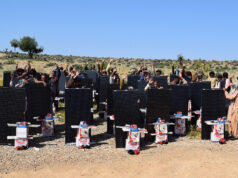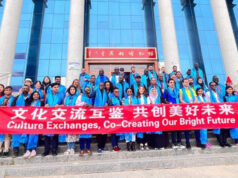Dervaish Ali
It is a commonplace to say that Americans are the most propagandized people in the world, the most misinformed and dis-informed. We Pakistanis are not far behind. For example, most, if not all, Pakistanis have some pet conspiracy theory up their sleeves. The most popular ones are: Yehudi saazish, CIA, MI6, Mossad, RAW or that generic evil mastermind behind all mysterious and mystified things, the “foreign hand” (berooni haath)—the all-purpose and all-mighty explanation that is so beloved of the bungling Pakistani ruling elite of all political stripes.
I am not really against what is now disparagingly called “conspiracy thinking”. In fact, the expression “conspiracy theory” itself is a conspiracy, the creation of conspiring vested interests! It was first intentionally and systematically used by the “invisible” establishment forces (now known as the Deep State) in post-WW2 USA, mainly to discredit those who refused to toe the official line on the Kennedy assassination and the related narrative on the Cuban missile crisis and also operation GLADIO in Europe. The labeling of “conspiracy theorist” is like name-calling, a propaganda term of abuse aimed at discrediting but which is in reality a psychological thought stopper. In a world where everything and everybody is suspect, especially the official narratives of the ruling classes everywhere, it is often employed by the vassals and mouthpieces of the high and mighty to slight, contain or control certain dissenting narratives and to prevent critical thinking. So, one must be mindful of the pernicious uses of such terms and instead of knee-jerk reactions, use one’s critical faculties and ask inconvenient questions and analyze the evidence.
In this blog, I want to touch on some aspects of the dark art of propaganda and especially the uses and abuses of language therein.
In this highly politicized world with its obscene wealth inequalities and unbridgeable power disparities everywhere, language is not and cannot be innocent. In such a world, language often encodes and reproduces wealth inequalities and unjust power relations. Significantly, it is the first choice instrument, the lubricant, for systemic exploitation and violence. Real, physical violence smoothly follows linguistic violence. The initial injury is done through a malignant use of language. In any act of violence, the first casualty is that of language itself. Violence, especially systematic state or state-sanctioned violence, requires the distortion and abuse of language so that the minds of the masses can be corrupted and the ensuing violence made palatable to them. Before the physical injury and elimination, the victim is linguistically attacked and mutilated. Before the napalms, cluster bombs and daisy-cutters are dropped, before the gunship helicopters arrive, before the mushroom clouds hang above their heads, the victims are systematically assailed and demonized with the devious use of language and toxic images. This has been a constant in twentieth century conflicts involving the modern West, from WW1 trench warfare, to Hiroshima to Vietnam, Iraq, Afghanistan, Syria and Yemen.
Propaganda is part and parcel of the modern social and political landscape everywhere. Since the early years of the twentieth century when its potential as a “public relations” exercise was first recognized, courtesy of pioneers in the field like Edward Bernays who was Sigmund Freud’s nephew, it has become more and more sophisticated over the years. But its common or essential techniques have remained the same. One of the early systematic analyses of propaganda techniques was carried out by the Institute for Propaganda Analysis (IPA) which was created in 1937. The IPA lists these common techniques as follows:
Word games (name calling, glittering generalities and euphemisms)
False connections or associations (transfer and testimonial)
Special appeals (plain folks, bandwagon and fear)
Let’s focus on some of these. For example, the propagandist language of name calling, fear mongering, and the use of glittering generalities serve demagogues and political extremists well. Through name calling the other (the target individual, group or country) is vilified, dehumanized and demonized. In a culture of fear, frightening and discomforting metaphors and imagery are used to disorient and disarm the masses and create a sense of vulnerability. Immigrants, Mexicans, Muslims in the USA. Rohingya in Myanmar / Burma. Certain ethno-religious minorities in Pakistan and India, for example.
As a propaganda technique, glittering generalities play a very important role in our current political milieu, both national and global. What is a glittering or glowing generality? This is how Wikipedia defines it:
“A glittering generality (also called glowing generality) is an emotionally appealing phrase so closely associated with highly valued concepts and beliefs that it carries conviction without supporting information or reason. Such highly valued concepts attract general approval and acclaim. Their appeal is to emotions such as love of country and home, and desire for peace, freedom, glory, and honor. They ask for approval without examination of the reason. They are typically used by politicians and propagandists.”
As vague words and expressions with positive connotations, glittering generalities are what the IPA calls “virtue words”. Strongly appealing to our emotional faculties, they disable our critical faculties and make us susceptible to all sorts of manipulations. Glittering generalities are words like science, rationality, development, progress, civilization, motherland, fatherland, democracy, freedom, human rights, sustainable, international community, civil society, community development, grassroots, empowerment, poverty alleviation. These are all abstract in nature, meaning different things to different people and, therefore, amenable to manipulation.
Let me take one of these, sustainable development (SD), to show how it works. Sustainable development as a “buzzword” is one of those words which are widely (ab)-used by all sorts of people and interests, from the most ecologically destructive industries to politicians, NGO and civil society missionaries, social justice activists, opportunist environmentalists, sold out journalists and compromised intellectuals and writers and so on. I think nobody has improved upon Lele’s critique of the concept. He wrote in 1991,
“SD is a “metafix” that will unite everybody from the profit-minded industrialist and risk minimising subsistence farmer to the equity seeking social worker, the pollution-concerned or wildlife-loving First Worlder, the growth-maximising policy maker, the goal-oriented bureaucrat, and therefore, the vote-counting politician.”
These noble, fix-all words, these magic wands, are all suspect. In our times, they have become like sacred cows, their particularly constructed meanings constantly guarded by the powerful and nobody can challenge them. Exhibit: the USA has destroyed at least four countries with the help of mere three of these glowing generalities: “democracy”, “freedom” and “human rights.” To challenge these is to invite the scorn and ridicule of the Western and westernized secular-liberal cadres everywhere. Often, these are all empty vessels into which are poured all the vile interests of the powerful, the oppressors and victimizers.
Following fear mongering, glittering generalities are then employed to give a sense of security and superiority. For example, nowadays the populist politicians with fascistic tendencies know only too well the pent up anger and frustration in the masses who are the victims of no-holds-barred casino capitalism around the world. They exploit this rage for their own purposes, often by redirecting it onto minorities and marginalized groups of society, as has happened in the United States under The Donald, in India under Modi, and in Hungary under Victor Orban, to name just a few.
Language that hides, that confuses and ignores, always serves some ulterior motives. George Orwell, one of the most profound critics of linguistic distortion, had good reasons when he advised writers, among other things, to write clearly and to use idioms and metaphors that help us visualize, that shows more and tells less. Ambiguity and impersonality in language use may sound nice and formal but they are often in the service of power and not speaking truth to it. When a politician uses the passive voice and says, ‘Mistakes were made”, then we know that language has been corrupted and truth has been distorted. We are not told mistakes were made by whom?, or who made the mistakes? and why? This evasive language hides and obscures in order to shun responsibility and to avoid culpability. It is language designed to deceive and injure. It is a communication blocker technique that cunningly frames the issues in such a way in which the audience, the listeners and watchers, are already rendered as a bunch of losers!
As elsewhere, this dark art is also practiced, tragi-comically, in the mainstream Pakistani media, especially in the electronic media. The main aim of these channels is not to inform and enlighten, but to keep the masses entertained and, therefore, to dumb them down. These days the shows on the mainstream channels, especially the news and talk shows, serve the same function as the old Pakistani dramas used to do some decades ago, minus the quality, the civility or just plain decency. Everything is staged, with all the paraphernalia of sets, make-up, scripts, rehearsals and all; it’s one big vacuous spectacle with bad performers. Notice how most of them are bad clones of western mainstream media–BBC, CNN, NBC, ABC— down to the minute details of dress, stage and music. Oh, yes, the music. The non-stop tasteless music that plays in the background of news and talk show channels also has a crucial function: to disorient the audience. Once disoriented, the audiences’ minds become like a blank slate, a tabula rasa, upon which anything and everything can be inscribed—or, “consent is stealthily manufactured” as the linguist and media critic Noam Chomsky would put it. It is this “sickness of language” to which the Trappist monk Thomas Merton alerted us long time ago and from which we need to protect ourselves. (Note: more on the topic of propaganda in the future)
Disclaimer: Views expressed in this article are those of the author and Balochistan Voices not necessarily agrees with them.
Share your comments!









